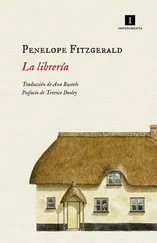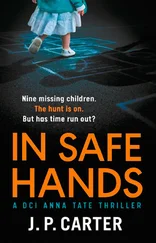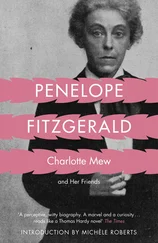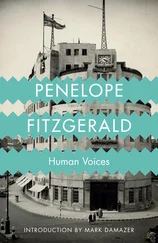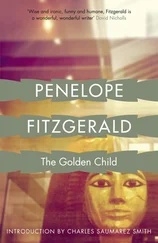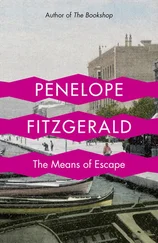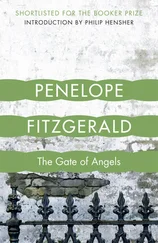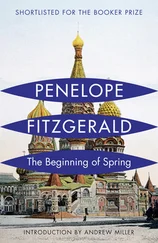With all of this Duckworth should have been well contented. However, with hindsight, Penelope should have thought better of entering a small pool of lady writers, all sharing some of the same traits, one of whom – Anna Haycraft (her pen-name Alice Thomas Ellis) – was also the nominal fiction editor. With Colin she got on, admiring his jovial eccentricity and classical scholarship. She had hoped he would accompany her to the Booker dinner, but he did not, adducing the improbable lack of a dinner jacket. Shortly after this it was inexplicably implied to Penelope that Duckworth had a surfeit of elegant nouvelles and she should return to crime-writing, which would sell better. Though we see Colin Haycraft hastily backtracking, the damage was done. She was deeply hurt. She would take her next novel to Collins. Here at last she fell on her feet: she had found a publishing home.
It is impossible to overstate Penelope’s energy and creativity in the late 1970s. There would be five novels in as many years, as well as an enormous amount of work on two biographies, each dear to her heart as projects, both of which she had to abandon, one from scruple, the other in the face of determined resistance from publishers. Although she would say little to friends or editors about her fiction (and that little misleading, for the novels must speak for themselves), the letters are full of fascinating detail about the unwritten biographies.
‘The Poetry Bookshop’ was the first conceived of these, and its intended theme is, if anything, more compelling and urgent today: the loss, through the unforeseen side-effects of modernism, of the lyric voice of English verse – the voice that spoke to the ordinary reader’s heart, the loss therefore (by now almost complete) of the mass audience for serious poetry. The book would have concerned itself with the rehabilitation of the Georgians, whose headquarters was at Harold and Alida Monro’s poetry bookshop in Devonshire Street (now Boswell Street) in Bloomsbury. Yeats, Frost, Edward Thomas, Lawrence, Wilfred Owen, even Eliot, all passed through its portals, but Penelope was especially interested in the minor figures: Monro himself, Anna Wickham, F. S. Flint and Charlotte Mew, with their, as she discovered, often tragic and tormented lives, who never quite made it, but each produced a handful of perfect lyrics. How one regrets this book, which she did not abandon until all four of her publishers had turned it down in succession. Yet fragments of it survive, first in the story of Harold Monro, in her introduction to J. Howard Woolmer’s scholarly bibliography of publications of the Poetry Bookshop, especially of its beautiful illustrated rhyme sheets, a treasured childhood memory of Penelope’s. Her letters to Woolmer trace the development of a warm transatlantic relationship between bookseller (albeit a very grand one) and collector, which becomes a meeting of minds as we see them sharing the details of their research. He most generously gave her some of the precious rhyme sheets when he realised she couldn’t afford them, and put her in the way of more money, most necessary to impecunious authors, by persuading her to sell her papers to Texas, and thus no doubt saving many of them, for she was modestly careless in such things.
To Richard Ollard, her great support and ally at Collins over the next years, we owe the eventual publication of the other fruit of ‘The Poetry Bookshop’ research: her wonderful dark biography Charlotte Mew and Her Friends, which reads so much like one of her novels. Ollard, like Raleigh Trevelyan also a distinguished writer, was senior literary editor at Collins, and perhaps the last of the ‘gentleman publishers’. They suited each other; she could rely on him. ‘You can always consult Richard if anything worries you,’ his assistant, Sarah, told Penelope. They became friends, as they remained to the end of her life. With him (as with several other correspondents, notably Francis King who gave her much encouragement) she discussed, in a spirit of high comedy, her difficulties and adventures in the preparation of her life of Leslie (L. P.) Hartley. The book, which sounded more promising than ‘The Poetry Bookshop’ to publishers, was still promised to Colin Haycraft, despite their rift.
What became of it? She had to overcome the implacable opposition of Lord David Cecil, Hartley’s literary executor, even to begin it. Cecil had been the love of Hartley’s life. Long married, he didn’t perhaps wish to acknowledge the basis of their youthful friendship. Anthony Powell kindly intervened to persuade him that Penelope would be the ideal person to tell Hartley’s story with the tact needed, and she worked hard on the book for three years from 1977. It wasn’t so much the gondoliers, the murderous, manipulative man-servants, the oceans of gin, the snobbery (all those duchesses), the extreme right-wing politics, the pot-shots at swans from his house on the River Avon, that dissuaded her from proceeding, but the affection she developed for his loving sister, Norah. How could she present the dissipation of his achievement of the ‘40s and ‘50s, the coarsening of his clear, careful voice (an echo of it is audible in The Bookshop, as Haycraft points out) in a good light? Could she betray the memory of their own friendship, of his support during her first literary career, her editorship of World Review, when she often published him, by the honest depiction of his long decline, all too visible in the desperately feeble novels and stories of his later years? She couldn’t, and wouldn’t. Somewhat wistfully, she gave up on the project in the early 1980s. These letters give a strong sense of what a biography it might have been.
The book she did deliver to Richard Ollard in 1979 was Offshore. Here one feels distinctly in Fitzgeraldland, or, in this case, afloat on the brackish, swirling, hardly benevolent waters of a great tidal river, uncertainly tethered to a land that has brought no luck. Though the characters couldn’t be more English, the tragicomedy of their fates (tragi-farce she called it) sounds notes more common in European fiction. It was sometimes painful to read for her family. All art, the adult characters invented or composite, there is much in it that was recognisably the case: ‘Grace’, the houseboat, probably bought for its name as much as its cheapness, appears as itself, as does Stripey the cat, and the two little girls are called Tina and Maria in the manuscript. Reality dances with imagination in a treacherous way, games are being played with remembered facts, though not with the feelings beneath them. In the third chapter, Nenna, who is as distanced from Penelope as she is like her, finds her thoughts becoming ‘a kind of perpetual magistrate’s hearing’ about her marriage and her motives for her actions. After many ordeals, the drama is resolved in irresolution. The boat never actually goes down.
Offshore was enthusiastically reviewed, shortlisted for the Booker, and then, against all expectations, won it. But what should have been a triumph had decidedly mixed results.
The Booker has an honourable reputation for selecting the best and most interesting novels of the year, even if they don’t always win, and it is now a venerable and respected institution, guaranteeing a (sometimes vast) increase in sales for the winner, and boosting reputations; but that only began to happen a year or so after Penelope won. Then, shamefully, in the early years when the prize ceremony received fairly shoddy television coverage, the lucky six authors shortlisted, whose only sin was to have written praiseworthy novels, were lined up as in a coconut shy to be insulted by media pundits, who gave no very convincing impression of having read the books in question. That year the firm favourite was A Bend in the River by V. S. Naipaul, a fine novel that Penelope later recommended for another prize. It would have been an equally worthy winner, but it is said, with truth, that judging literary competitions is like comparing gazelles with tigers. Journalists had already written their pieces, and were affronted by not even having heard, in most cases, of Penelope. What followed could be described as a field day of ignorant and exceedingly unfair indignation. The Critics on Radio 3 (which had praised The Bookshop to the skies), called the result a disgrace and a very bad day for modern fiction, or something of the kind. ‘When I got to the Book Programme, soaking wet because I’d had to be photographed on a bale of rope on the Embankment, R[obert] Robinson was in a very bad temper and complained to his programme executive "who are these people, you promised me they were going to be the losers?"’ wrote Penelope to Francis King. ‘I’ll never forget the Book Programme,’ Penelope wrote to Richard Ollard; ‘I was delighted to hear that you are printing off a few more Offshores. I thought it had got shipwrecked altogether by so many unpleasant remarks.’
Читать дальше
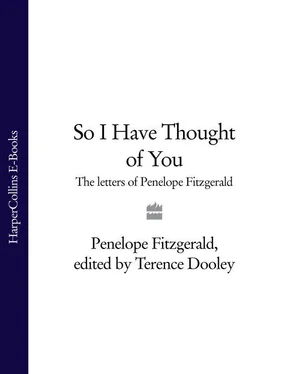
![Ally Carter - [Gallagher Girls 01] I'd Tell You I Love You But Then I'd Have to Kill You](/books/262179/ally-carter-gallagher-girls-01-i-d-tell-you-i-lo-thumb.webp)
